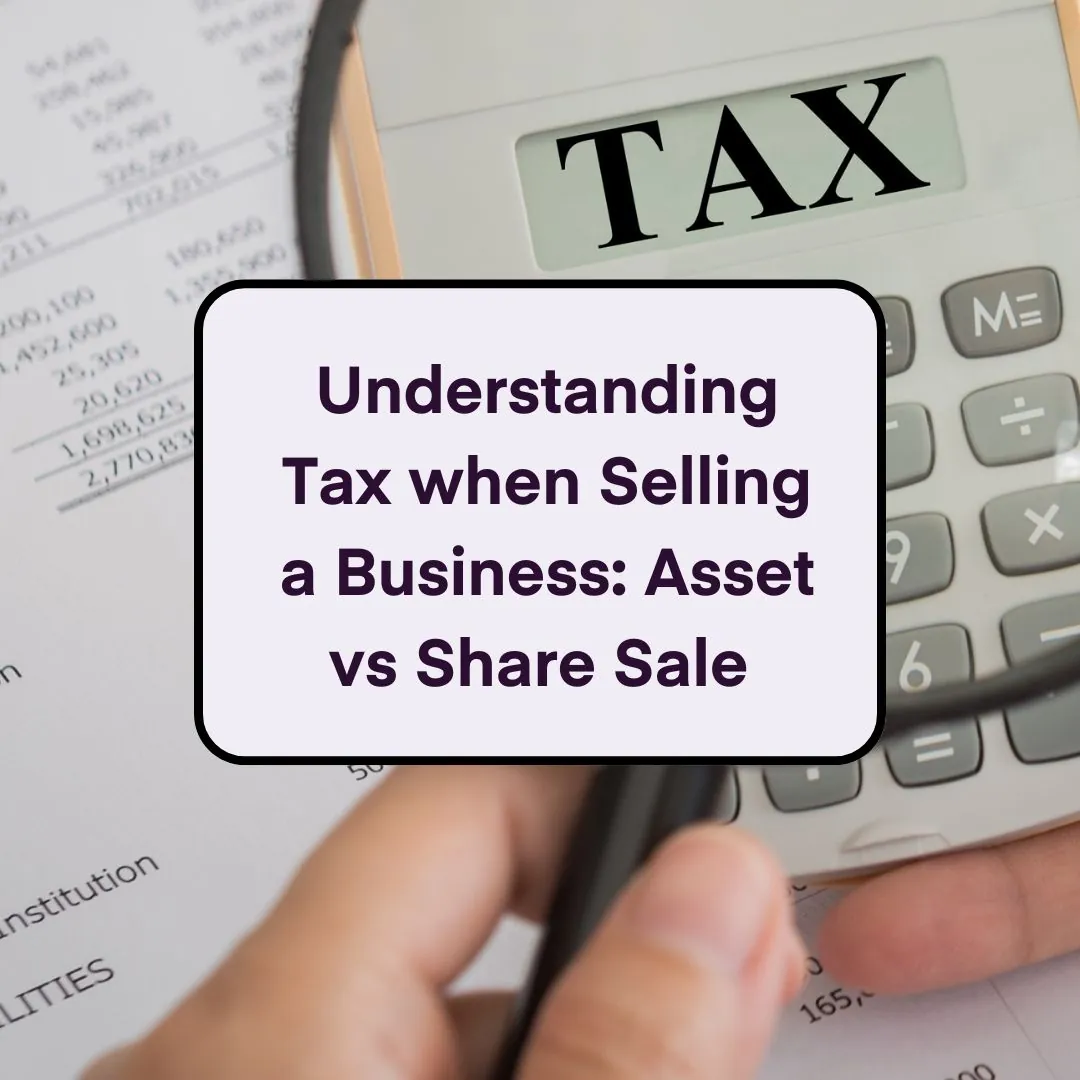
Small Business Financing Options
19 Aug 2020Successful small businesses survive because they have adequate funds in place to cover their day-to-day running costs with a surplus to invest in growth. Some of that funding can come from revenue, provided cash flow is positive. But, beyond that point, it’s essential to look for external funding to avoid running out of cash.
The pandemic has highlighted the vulnerability of businesses of all sizes and, in many cases, funding schemes such as the Coronavirus Business Interruption Loan Scheme have been focused on survival, rather than business growth.
However, it’s important to take a positive perspective and to look beyond the present crisis to a period of relative economic stability. Here, our corporate finance team sheds light on small business financing options for SMEs, plus how we can help ensure businesses have the funds in place to ensure their company thrives.
Small business financing options
There are many small business financing options available, from small loans from friends and family to equity investments from business angels or venture capitalists, with many other options in between.
As well as traditional sources of finance, there are an increasing number of new options such as ‘FinTechs’ and ‘challenger banks’ that focus on the small business sector.
The type of financing you choose will depend on your current stage of development and your plans for growth. And, as well as considering financing options, you should also focus on cash flow and driving revenue. If you don’t, you could quickly and easily burn through any funds that you acquire.
Accounting software supplier Xero reported that only 52 percent of UK businesses were cash flow positive in 2019 and some 50,000 businesses fail every year because of cash flow problems.
Read more: How your accountant can cure your cash flow problems
Family, friends and personal contribution
A natural starting point for simple funding is your family or friends or your own funds. You may have capital of your own, or you decide to remortgage your home to raise funds. Putting your own contribution into the business shows other potential investors that you are committed to the business and that may help to sway their decision.
Asking friends and family for finance can be awkward, although if you explain that their funds are making a positive contribution, rather than getting you out of trouble, that can make the request easier.
If you do borrow that way, a simple agreement is important, together with an indication of when you will repay the money, together with any ‘reward’ you will offer for the loan.
Related: What is a Shareholders' Agreement, and why do you need one?
Related: How to give employees shares in your business
Crowdfunding
Like the family and friends option, crowdfunding is a less formal process than other traditional methods. By pitching your business online, you invite the general public to provide funds in return for different types of reward or incentives.
The incentive might be a stake in the business or a financial reward, such as a specific level of return on the investor’s contribution.
To be successful, your crowdfunding pitch must attract attention and it helps if your business is showing strong growth prospects or has a unique feature that gives it the edge over competitors or offers strong benefits to customers.
Even if you have a target for your crowdfunding campaign, you are not making a formal application as you would when applying for a loan. That makes the crowdfunding option less certain in terms of outcome. It can also take a long time to make progress with no fixed timescale for receiving offers.
A good business plan is essential to attract interest from investors and your chances of a successful application. At Accounts and Legal we can help you put together a well considered business plan which will allow you to plan and formulate realistic and accurate forecasts. You can find more about our service here.
We recommend that as part of the financial part of a business plan, a cash flow statement and balance sheet are prepared.
There are websites designed to support different types of crowdfunding. Kickstarter, for example, is dedicated to the creative industries. Businesses can pitch their ideas on the site, promote their incentives and track progress against targets.
Related: Why is gift crowdfunding excellent for start-ups?
Business credit cards
Business credit cards, like their personal equivalent, provide a flexible form of finance. They can be used for day-to-day business purchases or smaller capital items and can improve cash flow by preserving cash for short periods of time.
Depending on the rate of interest charged on the card, they may prove to be an expensive form of funding.
Bank loans and overdrafts
Back loans are a traditional and relatively popular method of financing for small businesses.
The application process is a formal one and may take a long time to complete.
Feedback from the market indicates that established High Street banks now apply stricter lending criteria to small businesses, a process that has increased even further following the pandemic.
With a bank loan, you receive a specific amount of money which you repay with interest over an agreed term. However, unlike crowdfunding or some other forms of investment, banks do not take a stake in your business.
Bank overdrafts offer a more flexible form of finance. Funds are available when you need them and you incur charges on the amount of overdraft you have used.
Earlier data from UK Finance indicated that there had been a 50 percent reduction in the number of overdrafts offered to small businesses. The data also indicated that the average acceptance rate for small business loans was around 69 percent.
FinTech loans
FinTechs are financial services firms that use technology to simplify financial processes for their clients. FinTechs working in the small business sector aim to be faster and more agile than traditional banks so that small businesses can access funds more easily.
They do this by making faster decisions via paperless applications and providing businesses with access to large pools of capital, with funds deposited quickly following acceptance.
One FinTech, iwoca, claims to provide 12 percent of all new business overdrafts, a higher rate than its established competitors. The firm has provided £1 billion of loans to small businesses with a goal of providing £5 billion by 2023.
Small businesses are four times more likely to be approved for funding with iwoca if referred by an accountant, according to the lending startup. If you’re a small or medium sized business owner looking to apply for small business financing or lending, get in touch.
Major banks are also setting up their own FinTech-type operations, with varying degrees of independence from core bank activities and controls. Santander, for example, has spun off its investment arm InnoVentures, now known as Mouro Capital.
NatWest has a digital lending platform known Esme Loans, which provides loans of up to £250,000 to small businesses and sole traders with a fast, paperless application process.
FinTechs are creating more competition in the business banking sector, giving small businesses greater funding options and faster, much simpler application processes.
Find out more about the new wave of SME lending.
Business angels
Business angels provide funds in return for a stake in your business. They may not get involved in the day-to-day running of your business, but they may specify how the money is used.
The right angel investors can also provide useful experience and advice on business development, which adds further value to the funds they provide.
Although you do not have to repay the funds, you are likely to lose some proportion of control over your business and that may impact on the way you plan to develop and grow the business.
Venture capitalists
Like business angels, venture capitalists provide funds in return for a stake in your business, although the sums provided are generally higher. Venture capitalists generally look for businesses with a strong concept and an opportunity for rapid growth so that they can earn a return on their investment in the shortest possible time.
Because of the larger investments involved, venture capitalists generally require a larger stake in the business, which can prove a barrier to your business goals. However, because they want your business to succeed, they will likely bring experience and contacts that can help accelerate growth.
In evaluating offers from venture capitalists, you need to balance the contribution they can make to growth and success against the loss of equity in the business. Venture capitalists, for their part, will scrutinise financial aspects of your business very carefully looking for evidence of your claims for the value of the business and future sales, as well as your track record. The process can be intimidating as viewers of ‘Dragons Den’ will be aware.
Government investment schemes
Apart from private and public sources of finance, there is also a range of government grants and investment programmes designed for start-ups and small businesses. Their aim is to stimulate growth in this important sector of the economy.
For start-ups, the Enterprise Investment Scheme and Seed Enterprise Investment Scheme provide tax incentives to investors who subscribe for shares in a new business. Investors receive tax refunds on the amounts they invest and receive tax relief if they make a loss on their investment.
The Enterprise Finance Guarantee scheme guarantees loans to small businesses that are unable to access bank loans because they don’t have relevant security or because they only have a short trading history. There are strict qualifying conditions for this type of loan and you must prove that your business is viable.
Government research and development grants in the form of tax incentives or direct cash injections are available to companies developing innovative products. There are also various regional and county schemes designed to encourage business growth in specific parts of the UK.
Preparing your case
Whatever type of funding you want to acquire you must prepare a strong case for potential investors. You must have a strong business case with accurate financial records and cash flow forecasts, together with a realistic valuation of your business and its prospects for growth.
Your pitch should clearly demonstrate the strengths of your business and the reasons it will succeed, with an explanation of how you will use the funds to accelerate growth and how you will reward investors.
We can support your funding application
By working with a professional adviser, you can increase your chances of a successful funding application significantly. For example, as we mentioned earlier, evidence indicates that small businesses are four times more likely to be approved for funding by a FinTech like iwoca if the application is referred by an accountant.
Accounts & Legal can provide that support. We are one of the few accounting practices operating a corporate finance service for small businesses outside the top 20 UK firms. That makes us more competitive on price, and we are also more approachable to small businesses who probably find the top 20 a little daunting - and expensive.
We are also different because we offer small businesses a combined Corporate Finance & Legal service. This can simplify the process of funding applications and ensures that you have a professional case to offer.
It can be particularly useful if you are involved in a merger or acquisition because the transaction can be handled more efficiently by a single firm.
Our Corporate Finance & Legal service covers all aspects of funding, including strategic advice, financial modelling and forecasting, due diligence, help with negotiations and advice on suitable external advisors.
Our top solicitors and accountants have helped many new businesses make a firm start and acquire the funding they need to grow. Please feel free to contact us on 0207 043 4000 or info@accountsandlegal.co.uk to talk to one of our specialist small business advisers about our Corporate Finance & Legal service.
























